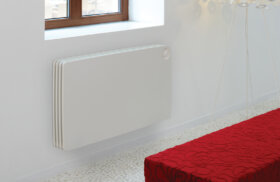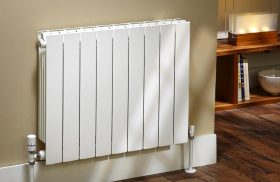There’s nothing better than waking up refreshed after a great night’s sleep. However, our modern lifestyles don’t appear to factor in the need for a good quality eight hours, and many of us wake up feeling not rested enough.
While you’re probably aware that, after a restless night, you’re not going to be as productive as usual at work, did you know that prolonged sleep deprivation can cause long-term damage to your health? According to the US National Heart, Lung and Blood Institute: “Getting enough quality sleep at the right times can help protect your mental health, physical health, quality of life, and safety.
The way you feel while you’re awake depends in part on what happens while you’re sleeping. During sleep, your body is working to support healthy brain function and maintain your physical health. In children and teens, sleep also helps support growth and development.”
It is therefore vital for your overall health and wellbeing that you get a proper night’s sleep, and there are steps you can take to make that more likely.
The best temperature for your bedroom
The National Sleep Foundation advises that a cooler room will help you sleep better. They suggest the optimum temperature is 60-67oF / 15-19.5oC as it will help your body’s temperature cool down which is how it initiates sleep. If the room is too hot or too cold, you will be too restless to sleep properly.
For babies, the NSF advises slightly higher temperatures of 65-70oF / 18-21oC.
The most effective way to control the temperature in different bedrooms is to install smart radiators which can be programmed to suit individual needs.
Other ways to ensure a great night’s sleep
It’s not just the temperature of your bedroom that will encourage a good night’s sleep. The UK Sleep Council’s advice is to look at all aspects of your bedroom as well as your lifestyle.
Unfortunately, we have become dependent on being online, and this is really disrupting our sleep patterns, principally because of the quality of light being emitted by phones, tablets and computers which trigger chemicals in our brains that tell us to wake up. The most effective thing to do is stop using them at least an hour before you go to bed and keep them all out of the bedroom.
Any kind of light or noise coming from them can be hugely disruptive to sleep – so if you have trouble sleeping, the first thing to do is ban gadgets from the bedroom.
There are also physical factors to take into account, such as the comfort and quality of your mattress, as well as light and noise pollution. When it comes to beds, check out the trade association the National Bed Federation which has a handy guide on buying the best bed for you.
If street lights outside your window are disturbing you, it would be a good idea to get some blackout blinds to block them out. Noise pollution might be more difficult to deal with. Double glazing will block many sounds out, but that’s not very useful if you like sleeping with the window open. Try earplugs, or playing white noise or sounds you find soothing in the background to help mask any noises outside the house.
Aesthetics
If aesthetics are important to you, make sure you complement your bedroom with a designer radiator that’ll not only help keep your bedroom at the optimum temperature for a good night’s sleep, it’ll also provide something beautiful to wake up to. Check out our collection online or at one of our UK showrooms.
To visit one of our radiator showrooms
St Albans | Brighton | Islington | Clapham | Leamington Spa | Bristol





